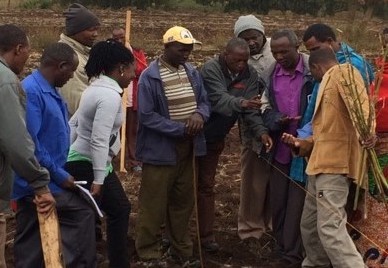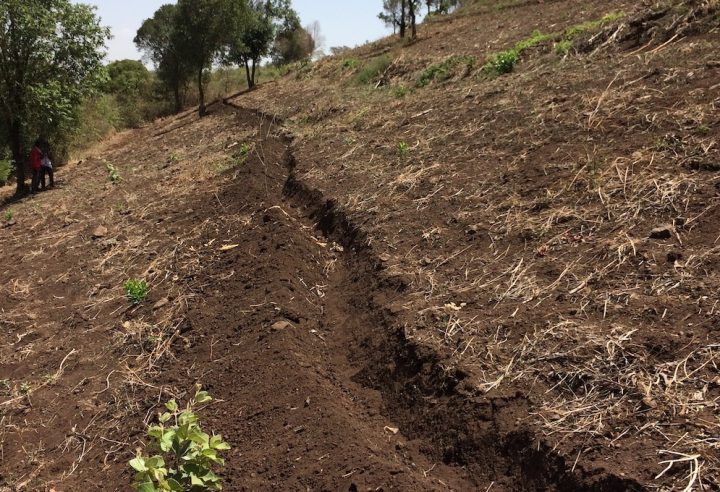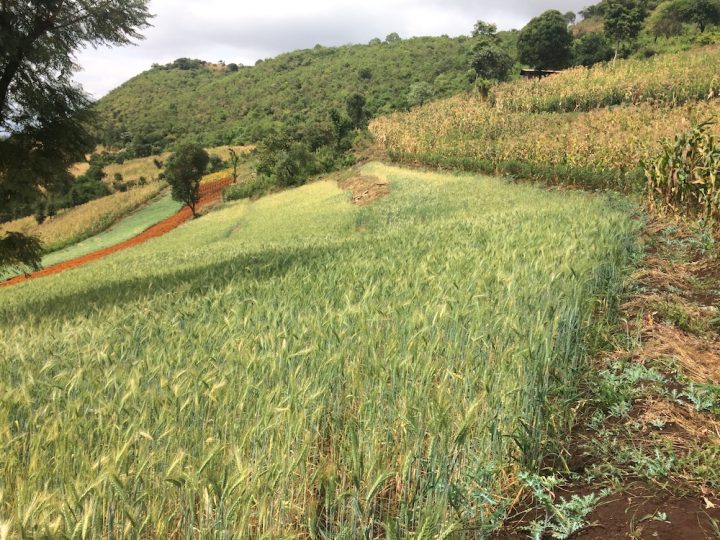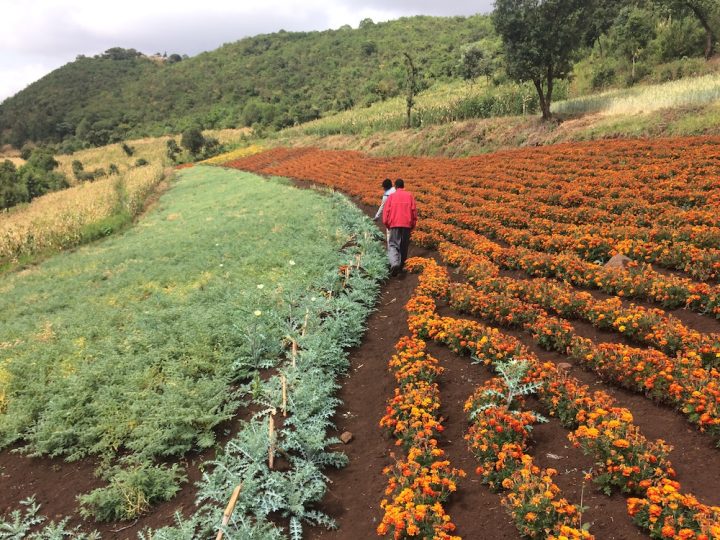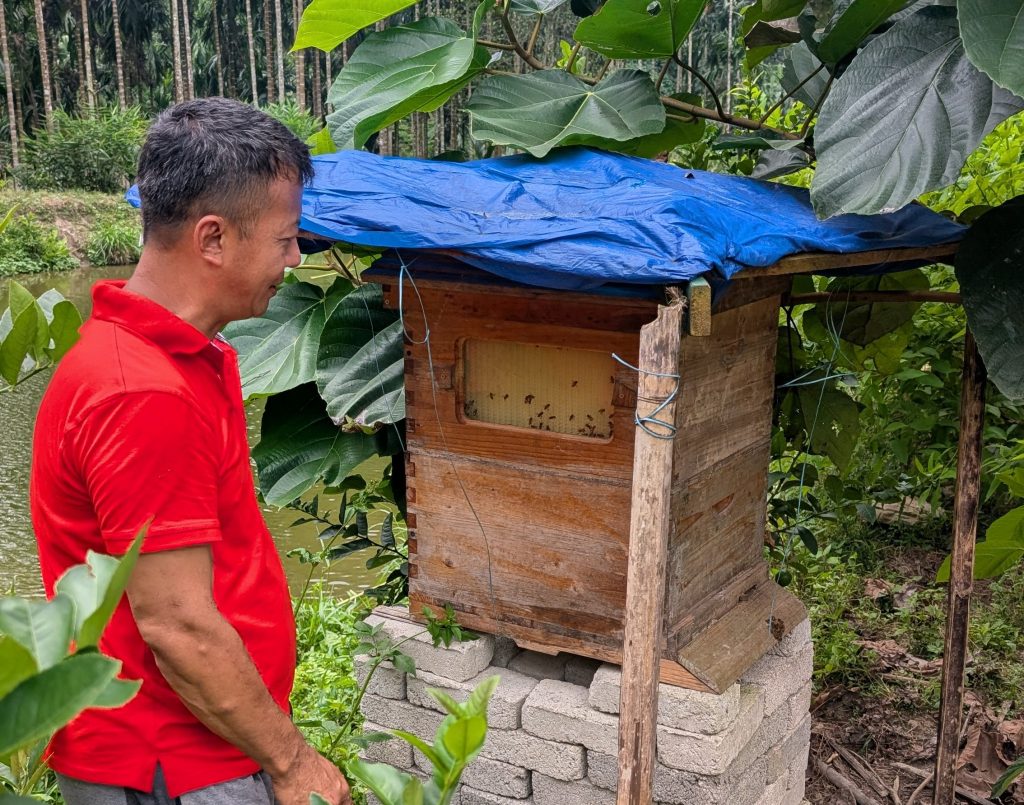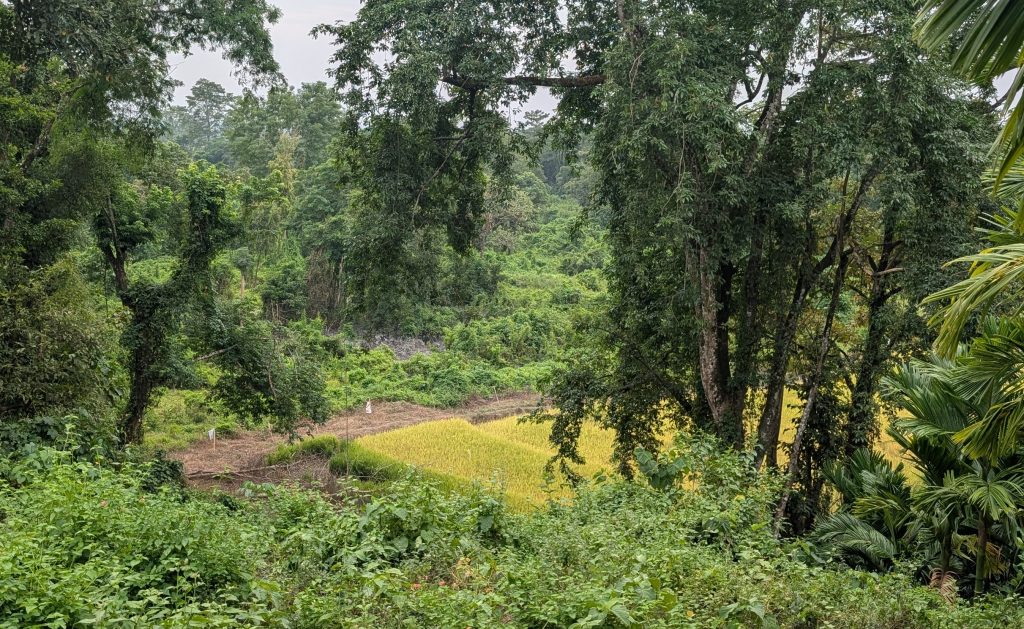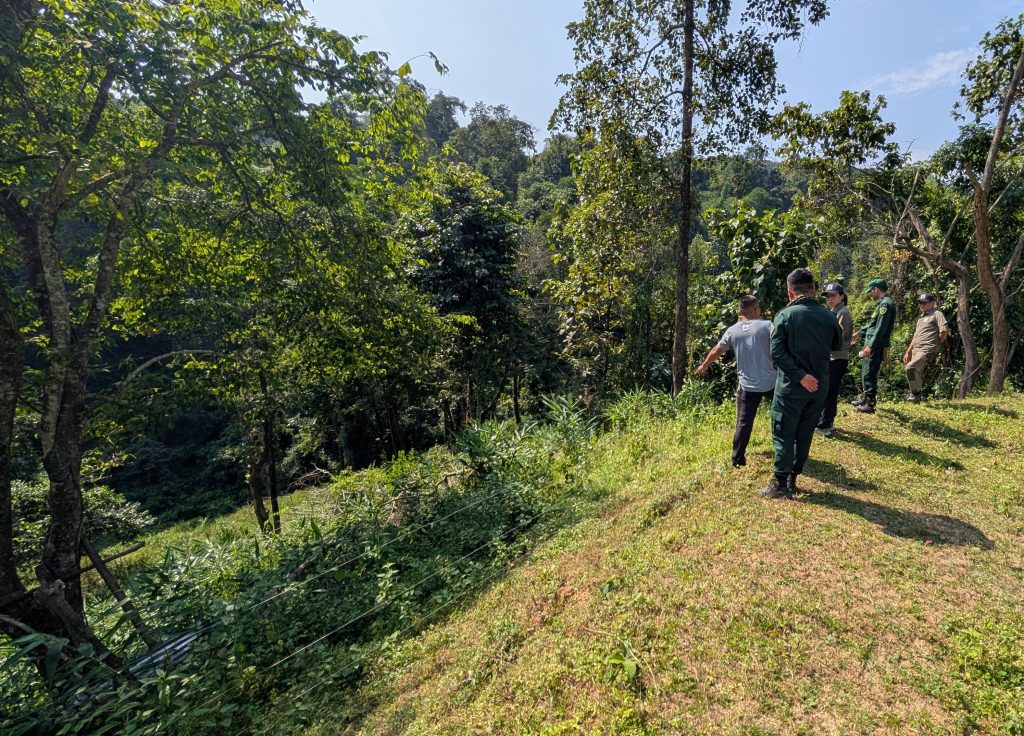Purpose
Reduce the vulnerability of rural farmers to drought and soil degradation.
Climate Impacts
Community members from Kilimatembo report the following impacts:
Declining crop yields
from soil degradation and drought
Increased soil erosion
from erratic rainfall
Food insecurity and livelihood loss
from crop declines
Declining livestock health
from drought and predation
Increase in competition
between humans, livestock, and wildlife for limited water resources
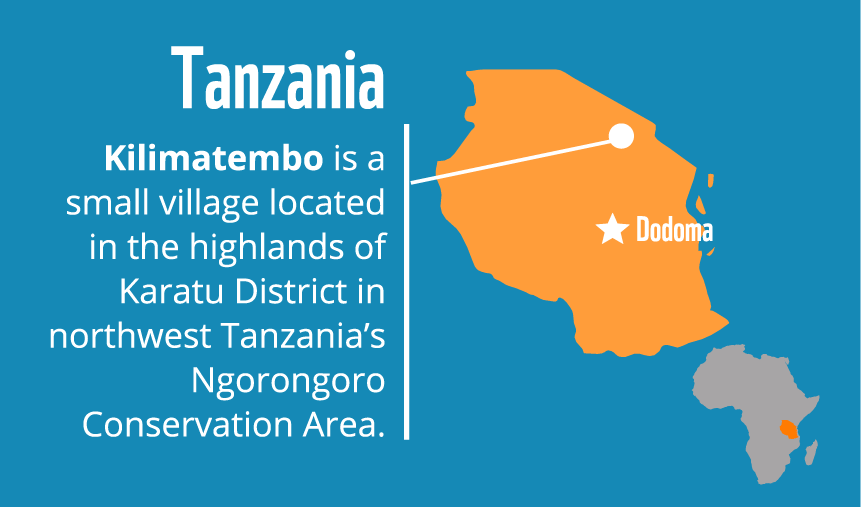

Activities
Village consultation meetings and site selection
100 farmers were identified to participate in the project.
Purchase and distribution of equipment
Training of sub-villages teams
Project partners trained participating farmers on constructing terraces and contour bunds.
Planting of vegetation
A total of 9700 seedlings of tree species and 10 lorry trips of elephant grasses were distributed to farmers. An additional 3700 seedlings were supplied by the Ngorongoro Conservation Area.
Continued monitoring of project site
project outcomes
project design
In partnership with the Karatu District Council and School for Field Studies, this project aimed to promote the conservation of soil and water in smallholder farms in the Karatu District highlands through (i) controlling surface water runoff using contours/terraces, and (ii) planting trees and grasses to stabilize the contour bunds. Both of these approaches were intended to reduce soil erosion by trapping silt and increasing water infiltration in the farms. Elephant grasses with dense root networks and agroforestry tree species commonly grown in the area were planted along the contour bunds for soil stabilization.

